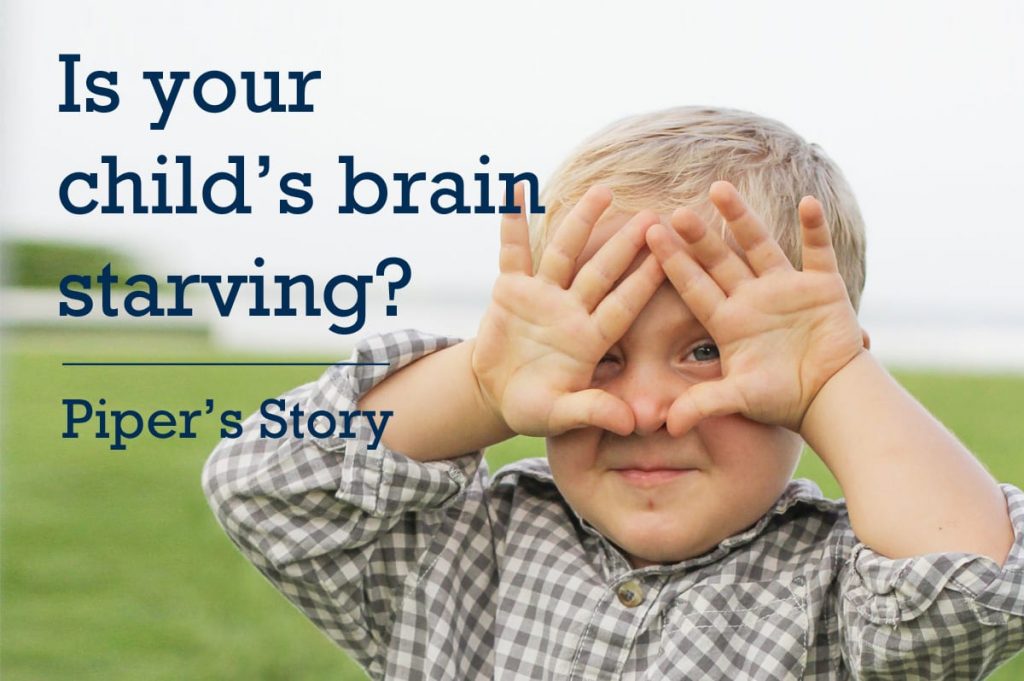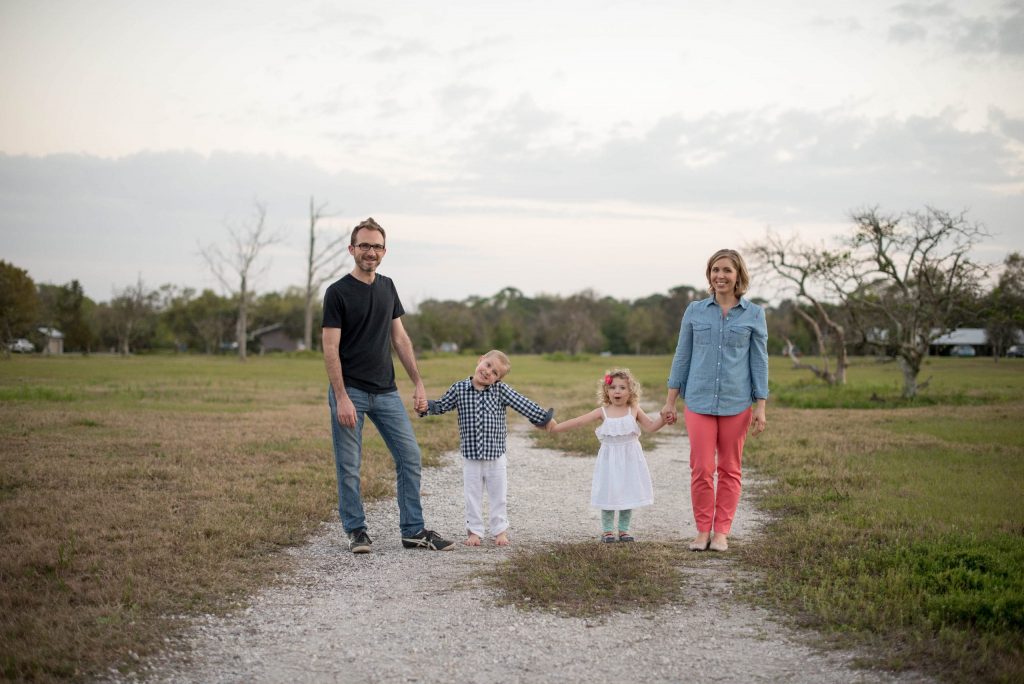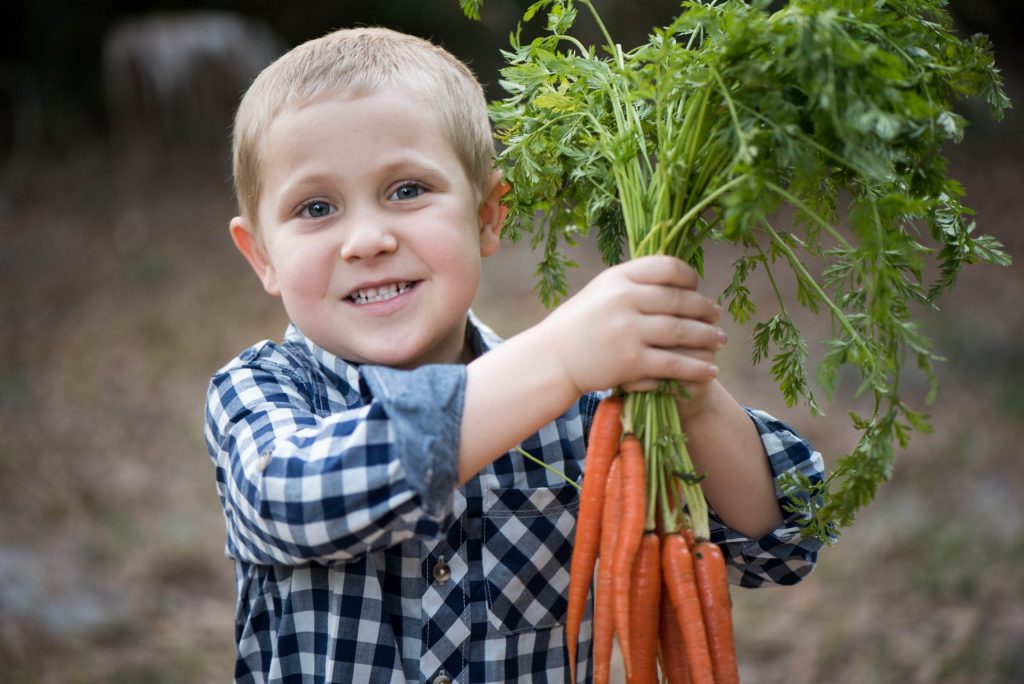This post is long overdue.
A story I’ve been wanting to share, but just haven’t had the courage to sit down and write.
A story about my son, Piper, a speech disorder, a starving brain, and how real food and a key nutrient played a key role in his rehabilitation.
This is Piper’s story…
In 2009 I found out I was pregnant. The thought of carrying life inside my belly for nine months seemed to be a daunting task. I, like most mothers, wanted to provide my child with the very best start in life. One area of life that wasn’t ideal was food. I ate a Standard American Diet (SAD) of heavily processed foods, low-fat everything and lots of take-out. After spending many nights watching documentaries (like Food Inc.) and reading countless Micheal Pollan books, I was convinced a dietary change had to be made. I cut all the processed food from our life. I also went a step further, a huge step, I eliminated all animal products from my diet. The only animal product I consumed was honey.
I’m talking strict!
My pregnant body, now very close to delivering a new baby, was being nourished solely off plant-based foods and juicing.
March 5, 2010 was the big day. A day I remember very well. Thirty-six hours of natural labor and one eight and half pound baby later, I was a mom!
That first year was a blur. Sleepless nights, new learning curves, hours of baby snuggles, lots of nursing, lots of ear infections, and the sweet scent of a baby.
I had continued with my vegan lifestyle during Piper’s first year. I was proud to have a child who would never be tainted by animal products. A child that would only live off fruits, vegetables, and grains.
Shortly after Piper turned one, I started to observe that his little friends were flourishing verbally. Slowly his friends switched over from baby-talk to understandable words. Piper continued to say that same /mmmm/ and /bbbbb/ sounds. No words, just sounds. Not wanting to compare, I assured myself he was a late bloomer. Words would come soon enough.
When Piper turned two I weaned him from nursing. He seemed to be the ideal eater, a plant-based child. Despite his healthy and growing body, I became concerned about his speech. He continued to only use two sounds to communicate. His vocabulary consisted of around three real words, but even those were hard to decipher. “He’s a late bloomer!” I listened to the other moms share all the cute new phrases and words their children were developing daily.
My heart sank.
He’s gotta be a late bloomer.
I waited.
I finally voiced my concern to Piper’s pediatrician. A very gentle doctor open to alternative people like our family. I expressed my concerns over his limited vocabulary of now five words. I was desperate and discouraged. I wanted so badly to communicate with my son. I wanted to hear him say his name and “I love you.” Anything! Just words. It seemed as though he was trapped. Longing to communicate, but unable to do so. The doctor checked his records and noticed a trend: ear infections.
Several months later, we sat in the waiting room of an ENT who advised ear tubes. We were told Piper’s ears were blocked with fluid and the tubes were our answer to communicating with our son. Within weeks we were to expect talking.
Hope.
That’s what I experienced at that moment!
Lots of Hope.
We went through the surgery a week later. I couldn’t wait to hear my son talk! I waited a couple of weeks. Nothing. Another week. Still nothing.
It was at this time that Piper was evaluated by a speech pathologist. The speech pathologist said she believed Piper had something called Apraxia.
Apraxia of speech, also known as verbal apraxia or dyspraxia, is a speech disorder in which a person has trouble saying what he or she wants to say correctly and consistently. The disorder may result from a stroke, head injury, tumor, or other illness affecting the brain. Source
I left with a heavy heart. The prognosis wasn’t good. The speech pathologist recommended speech therapy with as many sessions in a week as possible. We were told the journey of apraxia was long and one that would take many years of therapy to see positive results.
A month after the diagnosis, we found a fantastic speech teacher who was willing to work with Piper in her home a few times a week. A friend also recommended seeking a nutritional counselor as an alternative treatment.
After intense meat cravings during my second pregnancy, I had recently started incorporating pastured meat into our family’s diet; however, we still followed for the most part a plant-based diet. I personally laughed at the idea of my child needing a nutritional counselor. The idea that my child needed counseling on how to eat seemed absurd. I didn’t want to appear proud, so I agreed to get the opinions of the counselor.
During the first meeting, the counselor immediately questioned the fat intake in Piper’s diet. Piper being raised a vegan for the first two years of his life, didn’t care for any animal products and lived off bread and produce. The counselor wasn’t very pleased with that diet.
What?
What could be missing?
We were told to put Piper on fish oil (omega 3’s), doses of vitamin D, and increase his fat content. Apraxia is believed to stem from a neurological disconnect between the brain and the mouth, and the counselor seemed convinced that the omega 3’s and fat were critical links.
I was intrigued.
Over the next few weeks, I bought every book I could find on children and food. Was I depriving my son of critical nourishment which he needed? A missing link?
After scouring the pages of books, particularly Nourishing Traditions, I was convinced Piper needed a diet that nourished his brain.
His brain was starving.
Starving for fat!
In an effort to eat healthier, I had removed nearly all sources of fat, particularly animal fat, from our diets. During the most critical time of brain development I had starved Piper’s brain of a critical nutrient.
Recently it has been discovered that the Omega-3 fats are necessary for the complete development of the human brain during pregnancy and the first two years of life. The Omega-3 fat and its derivative, DHA (docosahexaenoic acid), is so essential to a child’s development that if a mother and infant are deficient in it, the child’s nervous system and immune system may never fully develop, and it can cause a lifetime of unexplained emotional, learning, and immune system disorders. Source
The human brain is considered to be the most sensitive organ in the body to food, and is made up of near sixty percent fat. During the first two years of a child’s life the brain triples in volume requiring nourishing foods with lots of good fat. Nearly fifty percent of the food children consume is used for brain growth and fat is critical in this development. Without good fat, the neurotransmitters in the brain can’t properly transmit and a disconnect can easily occur affecting the entire body (emotional, behavioral, learning and language). Good fat is critical in pregnancy and for growing children.
I believe this was a critical piece to Piper’s speech delay. Piper simply needed a diet of real food and essential fat which would nourish his brain.
After nine months of a diet rich in good, traditional fats and real food, Piper today talks and communicates like a mature three-and-a- half year-old. Sure, he says words here and there that are difficult to understand because he leaves off the end sound or has difficulty with the beginning, but he talks (all the time)! He communicates with words people understand. His vocabulary has blossomed from a mere three words and two basic sounds to hundreds upon hundreds of words!
The biggest change that I believe helped Piper was… fat! A diet rich in good fat for a growing brain. We began to see remarkable changes in Piper within just a couple of months of consuming good fat and real food.
Here are the foods that I believe played a critical role in nourishing Piper’s brain:
- Raw, Pastured Whole Milk, Butter, Cream, and Cheese: Rich in fat-soluble vitamins A and D and other crucial nutrients. You can read more about why we consume raw milk, here.
- Fermented Cod Liver Oil: Rich in Eicosapentaenoic Acid (EPA) and Docasahexaenoic Acid (DHA). FCLO supplies essential fatty-acids for the brain. I use Carlson brand.
- Soaking and Sprouting Grains: This traditional practice breaks down the phytic acid and anti-nutrients allowing the body to more easily digest protein, fats, and essential amino acids from grains.
- Fermented Foods: Yogurt (homemade recipe; Good Store-Bought Brands: StonyField Grass-Fed, Maple Hill Creamery, Organic Valley Grass Milk Yogurt, and Seven Stars), milk kefir (homemade recipe; Good Store-Bought Brand: Maple Hill Creamery) , water kefir, and kombucha, provide the body with good bacteria. This good bacteria produces essential vitamins the body needs, such as: Vitamin A, B vitamins, and essential fatty-acids.
- Homemade Bone Broth: Provide essential vitamins, minerals, and essential amino-acids. Bone broths are rich in protein and healing properties. I make this broth and use it to cook Piper’s favorite rice and any sauces.
- Pastured Meats: Rich in iron, zinc, calcium, and vitamins A, E, and B12. Pastured meat is a healthy source of good fats.
- Egg Yolks from Pastured Eggs: Rich in omega-3 and protein. Most digestible amino-acids available to the body.
I truly believe with these small changes we have been blessed to witness the power of a healthy diet in a child’s life. I believe Hippocrates said it best, “Let food be thy medicine and medicine be thy food”.
2015 Update:
I’m overwhelmed by the amazing response to Piper’s story. Thank you for commenting and sharing your stories with me over the past eighteen months. It’s truly been a blessing to read emails and comments about the difference real food is making in so many children.
Today, Piper is an energetic five year-old boy who loves to talk and share stories!! He loves playing soccer and Legos. He still consumes a nutrient-rich diet. Piper’s favorite foods are: steak, hard-boiled eggs, lentils, chicken, broccoli, and the Hulkbuster Smoothie.







HI I am mom of 3 year old who hardly speaks, he is extremely bright little boy. I am very puzzled because we follow WAPF diet and he is not deprived of healthy fats by any means. I was breastfeeding him for 2 years of his life also following WAPF diet. Any ideas?
Hi Renata, I truly believe some children really are just “late” talkers. Some children just need time. I don’t think diet is 100% the answer, although I do believe in the importance of eating well and how it can help heal the body if there is an imbalance, as in Piper’s case. Have you looked into GAPS? That is a book I read and the direction I really started to head with Piper (although I didn’t cut grains, just switched how I prepared them). That book has been incredibly helpful!
Thank you for sharing this story! It is beautiful ad inspiring!
Great post. Came here from The Sour Path is the Sweetest. I very much believe in healing with foods as well.
Thank you for sharing your story with me. It is similar to mine in lots of ways. I too went through my pregnancy as a vegan – I focused on healthy non processed foods and had a healthy pregnancy and baby. I raised her as a vegan for the first 1.5 years and she has always been healthy and is much more advanced than her peers in a lot of ways. After that time I decided that I didn’t want her to grow up as a vegan so she now eats meat, eggs and some dairy but it is very hard to get hold of healthy animal products where I live. I never restricted her fat though so this might have made a difference. She is also a picky eater though and it took her ages to try meat and she’s still fussy with it.
I believe that there are various healthy diets but I want my children to make their own choices when it comes to a variety of healthy foods. So I’ll introduce animal foods to my baby boy a bit earlier when he starts on solids.
Thank you so much for your story and I’m so glad Piper is doing well now.
This is such a great testimony! Thanks for sharing your story! I too noticed a huge difference in my son’s development when I focused on nutrient dense foods! His eczema cleared and he seems so much happier! (With butter, my whole family is happier!) thanks for sharing!
Thanks, Allison. It’s truly amazing the impact food has in healing the body. Yay, for butter :)!!
Wow, what a great story with a wonderful ending! I plan on someday raising my children to eat a whole foods, plant rich diet and it is so helpful to hear your story. This must have been so difficult to write and I thank you from the bottom of my heart for sharing it with us! So glad to hear little Piper is thriving and talking with you now!
This story hits so close to home. I had experienced a vegan pregnancy and my labor went 70 hours. My daughter was very floppy and very thin – 22 inches long and 5 lb, 13 oz in weight. She has experienced significant attention and auditory processing issues since preschool. She still could not read, write or spell effectively until a year and a half ago when we started to include butter, raw dairy and pastured eggs. It was like a miracle. Now almost 12, she is much closer to grade level than in the past. Essential fats do make a difference.
Wow, Michelle! Thank you so much for sharing! I hope by sharing our stories we are able to make a difference in other lives particularly women during pregnancy and with growing children who may be considering a restrictive diet.
Thank you so much for sharing your heart.
Wow! I’m glad your family figured out what was missing from your diet, and more importantly, that little Piper has fully recovered.
My family was vegan for the first year and a half of my firstborn’s life. He did not experience any learning or physical growth delays, but then our vegan diet did feature a lot of fat (avocado, nut butters, etc.), protein, sprouted grains, probiotics, fermented soy, and omega-3s derived from algae (fish, after all, get their omega-3 from algae and krill). And it helped that my son is not a picky eater!
However, we started eating animal products again as we found it increasingly difficult to get enough micronutrients like molybdenum and iron. Try as I might, I just couldn’t shake off iron-deficiency anemia with non-heme iron. We were healthy on a vegan diet, but we are healthier still on our new diet. I wonder, though, how we would be faring now if we’d stuck to the vegan diet…
Thanks for sharing your story!
Thank you Emily. And thank you for sharing your story.
Your blog is so inspiring an full of information! I’m so glad I found it! I have been a reader for a few months but haven’t yet left any comments. I am so sorry you had to go through such a difficult diagnosis for Piper! How amazing that after only 9 months of real full fat food along with speech therapy that you have seen such a difference! I’m a speech pathologist and I have never considered the link between apraxia and nutrition. I am fascinated! I’m not currently working as I’m taking time to stay home with my 3 little blessings but I will not forget your story. The next time I work with a child with apraxia I will definitely make sure their parents are aware of the possibility of a nutritional component involved. I am so glad Piper has made such great gains! Given how much he has improved in such a short time i am sure that the brain food has made a difference! Blessings,
Carol
Thank you so much. We are thankful for the tremendous progress he has made! The nutrition side was never discussed other than by the nutritional counselor and until I started to investigate. I am truly thankful we were led to look into the nutritional aspect.
Kudos to you good mama for figuring out what your son needed. Every body is different and there are still plenty of vegan children who brains are thriving. My own oldest son was an early reader, talker, and walker on a vegetarian diet, while my youngest was a late reader, walker and talker on a pastured meat, egg and raw dairy diet (which also helped him get rid of his asthma). I work with kids and find there is no perfect diet for everyone, but different things work for different people and body types. Moms are best at noticing what works best with their own children, but they need resources to draw on. I will be passing on your info to moms, along with info about good vegan, vegetarian, WAPF, GAPS diets and more. My own personal food philosophy is unprocessed, traditional, local, and low eco impact. Thanks for writing this blog and sharing your story.
Thank you. I agree there are many great ways to eat real food and each body is so different. I also truly believe a strictly plant-based diet is not a good choice for children after doing a ton of research. It’s interesting to me that when food is looked at in a traditional frame of mind, there are very few if any vegan societies in history. All consumed some sort of animal products, although what they consumed vary, but all the healthy societies consumed animal fats.
I completely agree! Our son has also been diagnosed with Apraxia, and while he also suffers from a disease that makes it difficult to absorb fat, we saw a huge improvement in his speech (HUGE!) when we added fish oil. Thanks for writing this article, going to recommend it to others!
Thank you for your story, When you were on a strict vegan diet you believed you were doing the right thing, of course. Every vegan believes what they’re doing is right and that’s why I hesitate to engage people in conversations about nutrition. Talking about nutrition with vegans is almost like talking about religion or politics with extremists. I’m really glad you shared your story so more people can learn this vitally important information.
Lovely post. I’m so happy for you and Piper! Thank you for sharing this post on Simple Mom’s Facebook!
Thank you so much :).
Thank you so much for this!! Our 2 yr old was recently diagnosed with Apraxia, we’ve had him in speech therapy since 15 months so we caught it somewhat “early” and his vocabulary has improved significantly. But I’m still looking forward to the day where he is able to carry on a “real” conversation, tell me he loves me, and fully express what he wants to express. It can be a lonely struggle, and what some moms would see as “normal development”, we see as major accomplishments! (My son has just recently learned his alphabet, knows when to say “yes” when he means yes, and is following some simple requests without major meltdowns….this is HUGE in our little apraxia world! 🙂 ) Thank you for sharing your heart, and while our therapist has never mentioned nutrition connections (other than the simple “is he eating normal meals?”, this gives me more to look into. We rarely eat red meat or fish, which tend to be the fattier meats. Looks like we might need to remedy this 🙂
I am so thankful to hear others can be blessed by Piper’s testimony. I completely understand the lonely world apraxia can be and how the little accomplishments in others eyes are huge milestones! Thank you for sharing. I believe there are so many moms out there in our shoes. Diet was never discussed by any of our Docs or therapists either. I just don’t think they understand the connection. Blessings to you and your family.
Hi Bethany, just wanted to encourage you to keep up the good work! Our son has Apraxia as well and your son’s recent accomplishments remind me so much of ours. While every kiddo is different, we have been in speech for one year and have seen great improvements, he just turned 3 and can use his words appropriately and meltdowns have decreased dramatically. Just wanted to give you some encouragement and tell you to keep it up!
Awesome!!! Thanks for sharing this!! And thank you for all the work you put into this blog to get the truth out about real food!!
I cut out most animal products shortly after my son was born. I too was convinced that animal fats were toxic, but after further research realized they were essential. We’re still trying to get him to eat meat (he’s not used to the texture), but Piper’s is a story many people need to hear. Thank you for your insight!
Thank you for sharing and your encouraging words. I think cutting animal fats is very popular right now thanks to a few popular documentaries and books, yet these are so critical to developing babies, nursing moms, and pregnant women (and everyone I believe). Piper still doesn’t like the texture of meat, so I usually blend it in his spaghetti sauce or cook something like rice in broth and mash up the meat. I tell him what he is eating, but he doesn’t care for just the plain texture of meat yet.
Oh Kristen, my heart breaks for you having to go through this but also rejoices that you have a happy outcome! Thank you for being vulnerable and sharing such a personal side of your family with us. Your journey, experience and knowledge will certainly help someone else. I pray for the mom who is struggling just like you we’re, that your words will change the course of their family journey. Lots of really great information here to dig in deeper with. I had never heard of apraxia, but certainly something I should be familiar with. Again, thank you for your ability to share openly…it will make a difference to many.
Thank you so much. It was a very emotional time for us. I am so thankful the Lord gives wisdom.
Thank you so much for sharing your story! Such amazing insight into our perspectives and attempts at doing everything right for our children *and* our ability to have an open mind and try new things when our original ideas aren’t working as well as we’d hoped! I am so glad to hear of Piper’s progress! Kudos to you, Momma, for stepping up, being open and doing your best all the time!
Really excellent Kristin! Thank you for sharing!
Hi Kristin
It was so moving to read your personal journey with your son. How hard it must of been to go through your ordeal but I commend you for sharing your story because I know it will help many parents to be aware of how important it is to eat the food that is going to enable our children to grow healthy. I have learnt so much with what you have shared and will share this knowledge to my family. Once again thank you Kristin!
Thank you, Naomi! I hope Piper’s story is an encouragement to many families :).
Dear Kristin,
This is your Aunt Kathy writing, I am sorry to hear about your heart ache and worries regarding Piper’s speech development. I had no idea about the magnitude of your concern or the journey you all experienced. As a practicing speech/language pathologist, I feel compelled to share this reliable source from the Childhood Apraxia of Speech of North America – CASANA with both you and your audience (see link below). Although your current service provider (speech pathologist) has probably already told you this, should not blame yourself or your choice for a vegan diet on Piper’s Dx. Most individuals with apraxic and/or apraxic like characteristics are either idiopathic by nature (an unknown cause), or exists secondarily to more complex medical conditions. http://www.apraxia-kids.org/library/what-causes-childhood-apraxia-of-speech-and-is-it-preventable/
Thank you, Kathy.
Well, from what I understand from listening to a lecture by a psychiatrist Omega 3 oils from fish is far superior to the vegetarian kinds from say flax and chia, so it might be difficult to get the nourishing fats. Our brain is mostly made out of fat. That’s why we’re fat heads, I suppose. If one’s vegan, one would also miss out on beneficial things like ghee, which is clarified butter. Some might benefit from genuine buttermilk. I am taking a lot of omega 3’s, and that seems to be helping me. There are some studies that say it’s important for mothers to consume enough omega 3 while they’re pregnant, but there was no way for you to know that. So many people were telling us that we should consume low fat diets, which is ridiculous. We just need the right fats.